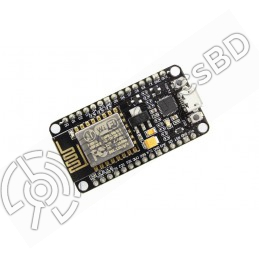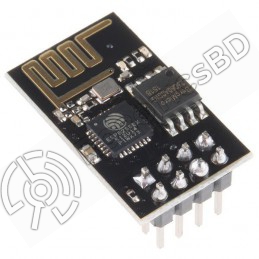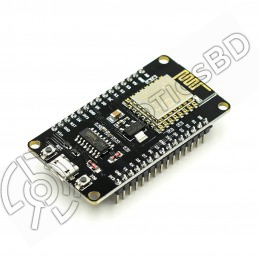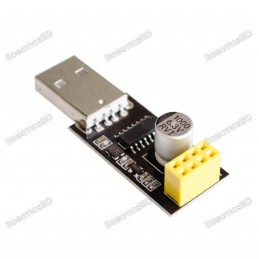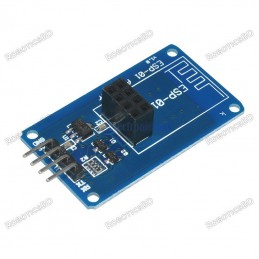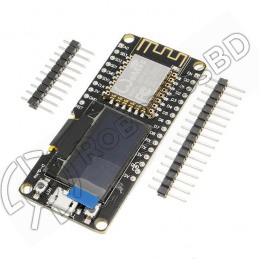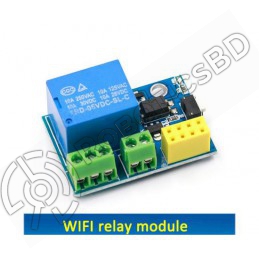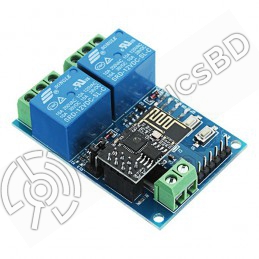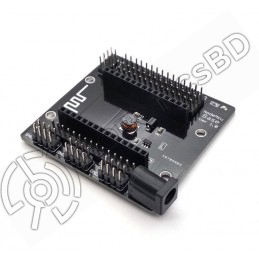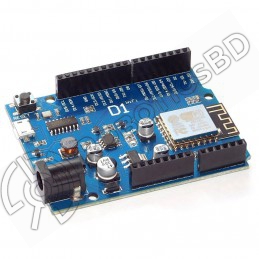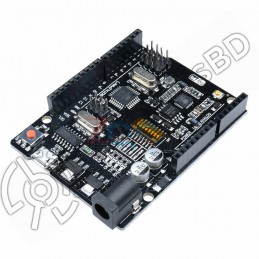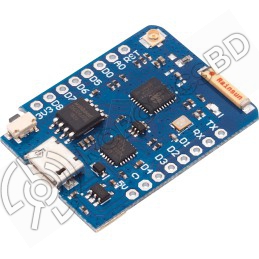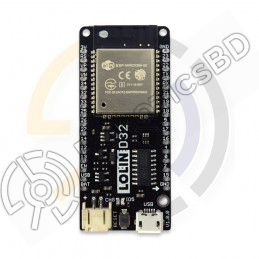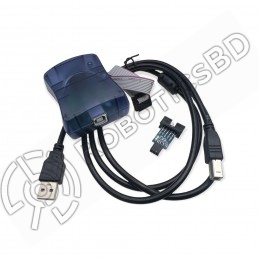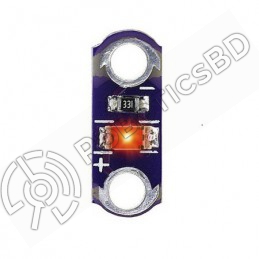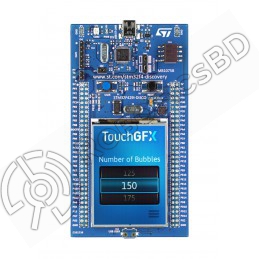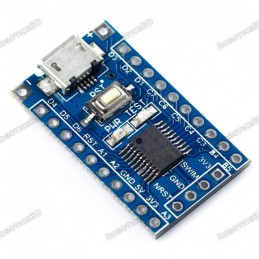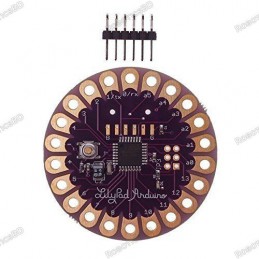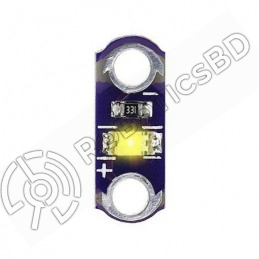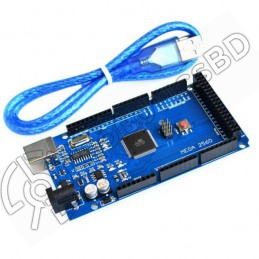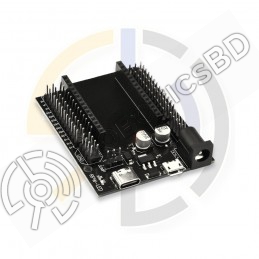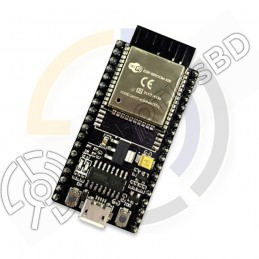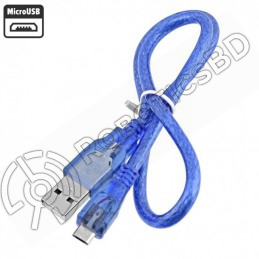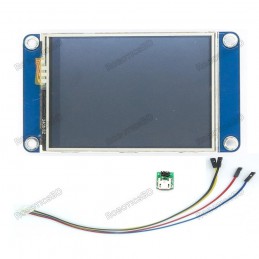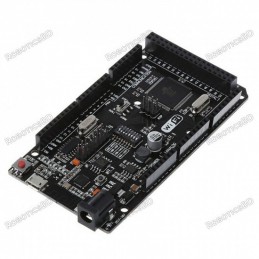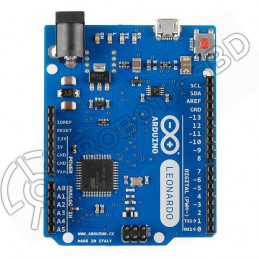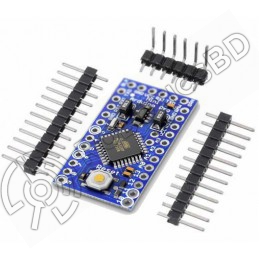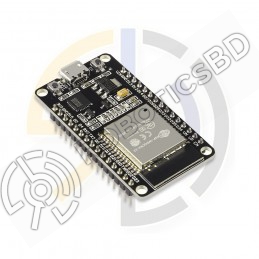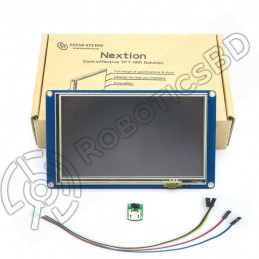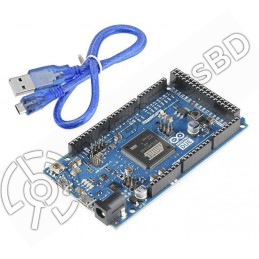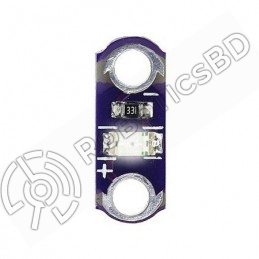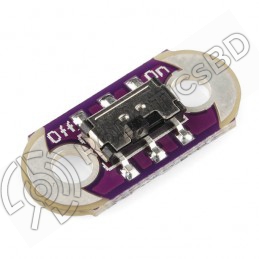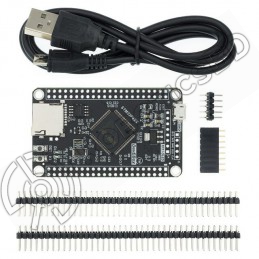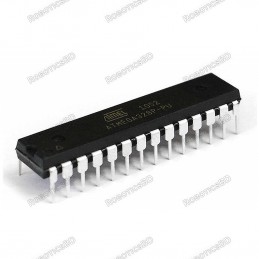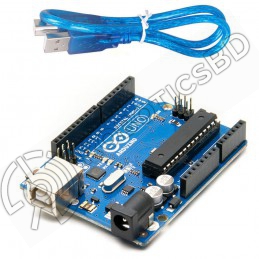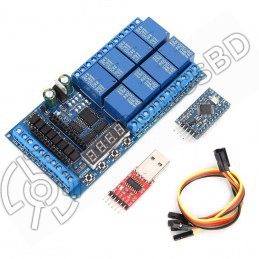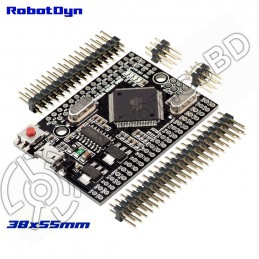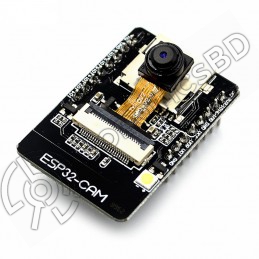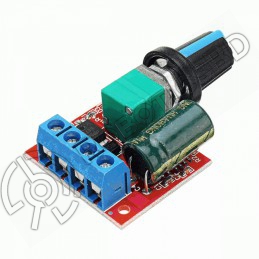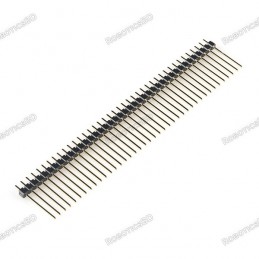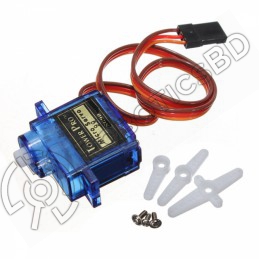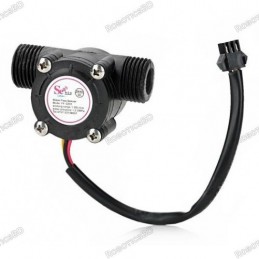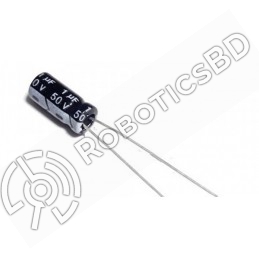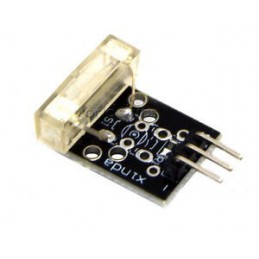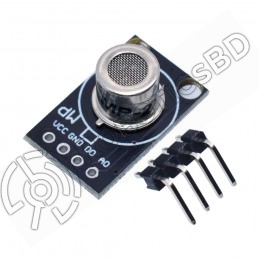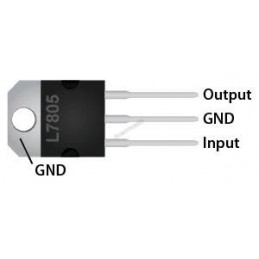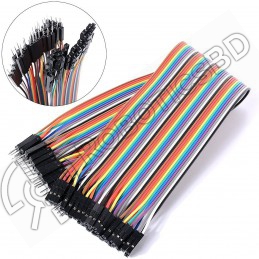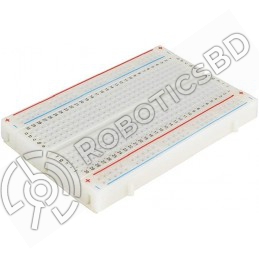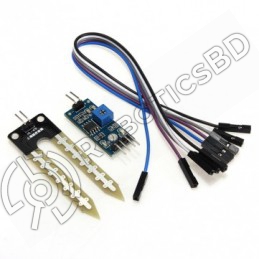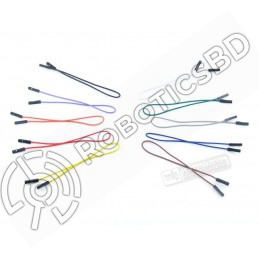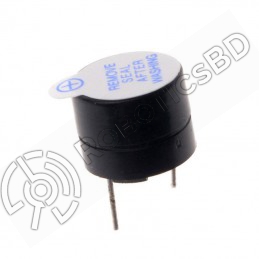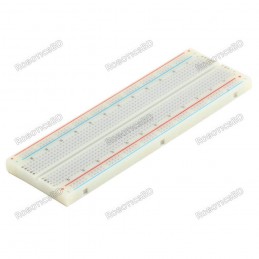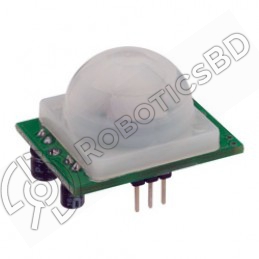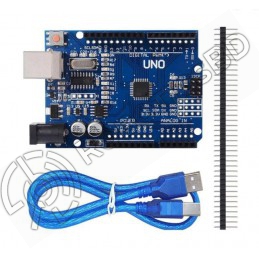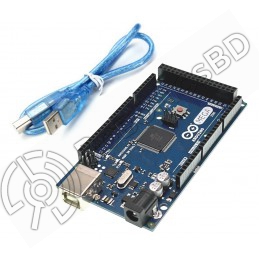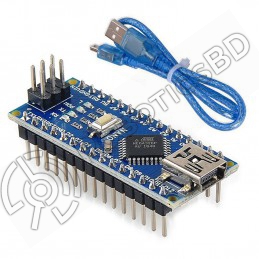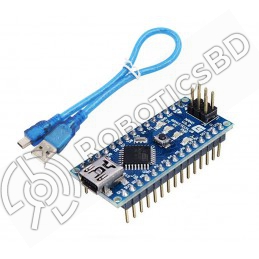The Development Kit based on ESP8266, integrates GPIO, PWM, IIC, 1-Wire and ADC all in one board. Power your development in the fastest way combine with NodeMCU Firmware! R2 version had CP2102 USB-TTL instead, larger current support, slim board can put on breadboard. Programing it with Arduino IDE.
The ESP8266 NodeMCU CP2102 board has ESP8266 which is a highly integrated chip designed for the needs of a new connected world. It offers a complete and self-contained Wi-Fi networking solution, allowing it to either host the application or to offload all Wi-Fi networking functions from another application processor. Featured by RoboticsBD.
ESP8266 has powerful on-board processing and storage capabilities that allow it to be integrated with the sensors and other application-specific devices through its GPIOs with minimal development up-front and minimal loading during runtime. Its high degree of on-chip integration allows for minimal external circuitry, and the entire solution, including the front-end module, is designed to occupy minimal PCB area. Featured by RoboticsBD.
The ESP8266 NodeMCU development board – a true plug-and-play solution for inexpensive projects using WiFi. The module arrives pre-flashed with NodeMCU firmware so they’re ready to go – just install your USB driver (below). ESP-12 Lua Nodemcu WIFI Dev Board Internet Of Things board contains a full ESP8266 WiFi module with all the GPIO broken out, a full USB-serial interface, and a power supply all on the one breadboard-friendly package.
The board is based on the highly popular ESP8266 WiFi Module chip with the ESP-12 SMD footprint. This WiFi development board already embeds in its board all the necessary components for the ESP8266 (ESP-12E) to program and upload code. Featured by RoboticsBD. It has a built-in USB to serial chip upload codes, 3.3V regulator, and logic level converter circuit so you can immediately upload codes and connect your circuits.
Note: NO need to install driver for CH341 (replaced by CP2102), and NO need to flash firmware when you get it and use on first time. This is different with version R1.
To flash R2, please see the update on Nodemcu wiki page.
High quality USB cable is needed for this board to give high current supply, otherwise your board won’t be recognized.
The hardware documentation for the board can be found on nodemcu-devkit repo, including schematics and PCB layout designed with Altium Designer.
Features :
- Wi-Fi Module – ESP-12E module similar to ESP-12 module but with 6 extra GPIOs.
- USB – micro USB port for power, programming and debugging
- Use CH340G to replace the CP2102.
- Headers – 2x 2.54mm 15-pin header with access to GPIOs, SPI, UART, ADC, and power pins
- Misc – Reset and Flash buttons
- Power – 5V via micro USB port
- Dimensions – 49 x 24.5 x 13mm
| General Specification |
| Serial/USB Chip |
CP2102 |
| Output Power(dBm) |
19.5 @802.11b Mode |
| Flash Memory(Mb) |
4 |
| Support |
SDIO 1.1/2.0, SPI, UART |
| Length (mm) |
49 |
| Width (mm) |
24 |
| Height (mm) |
13 |
| Weight (gm) |
8 |
| Shipment Weight |
0.012 kg |
| Shipment Dimensions |
6 × 3.5 × 2.5 cm |
Documentation:
You can find the firmware source code and documentation on Github, as well as nodemcu-flasher, a Windows only tools to flash the firmware to a module. There’s also a separate tool called esptool that will let you flash nodemcu from Linux. In case you find the documentation is all over the place, you might want to checkout NodeMCU video tutorial below.
Nodemcu.com is the official website for the project, but you’ll find more information on Github. You can also get answers to your questions on their BBS or ESP8622 community forums.
- CP210x USB to UART Bridge VCP Drivers
Package Includes :
1 x NodeMcu Lua WIFI Board Based on ESP8266 CP2102 Module


